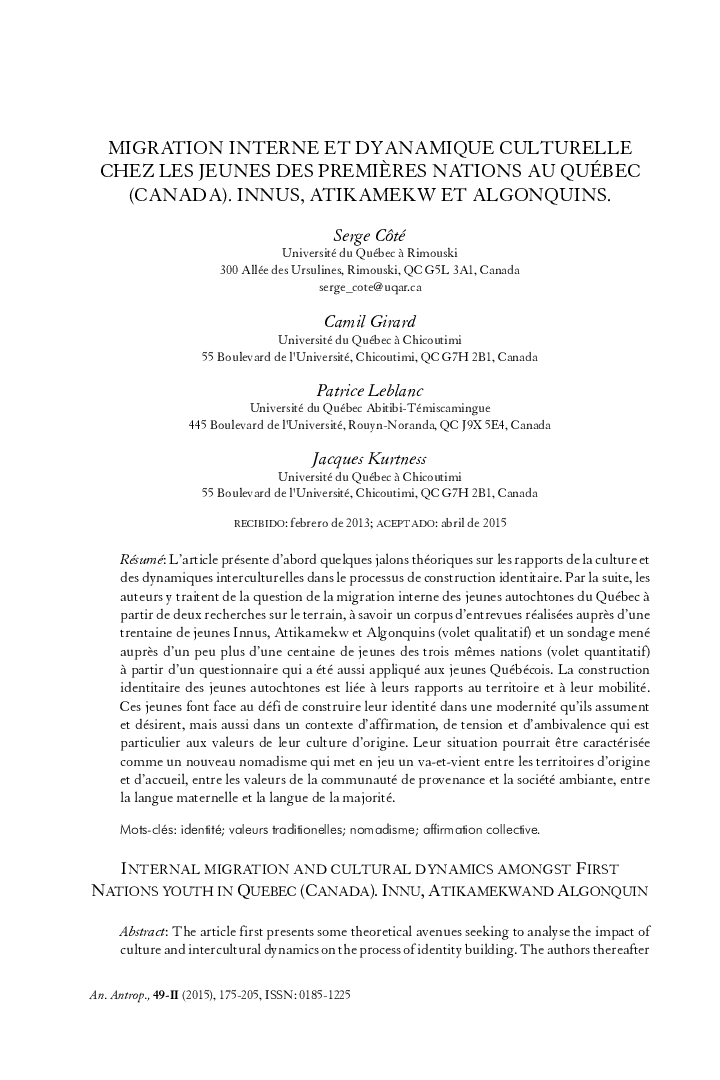| Article ID | Journal | Published Year | Pages | File Type |
|---|---|---|---|---|
| 1157215 | Anales de Antropología | 2015 | 31 Pages |
Resume:L’article présente d’abord quelques jalons théoriques sur les rapports de la culture et des dynamiques interculturelles dans le processus de construction identi taire. Par la suite, les auteurs y traitent de la question de la migration interne des jeunes autochtones du Québec a partir de deux recherches sur le terrain, a savoir un corpus d’entrevues réalisées auprés d’une trentaine de jeunes Innus, Attikamekw et Algonquins (volet qualitatif) et un sondage mené auprés d’un peu plus d’une centaine de jeunes des trois mémes nations (volet quantitatif) a partir d’un questionnaire qui a été aussi appliqué aux jeunes Québécois. La construction identitaire des jeunes autochtones est liée a leurs rapports au territoire et a leur mobilité. Ces jeunes font face au défi de construiré leur identité dans une modernité qu’ils assument et désirent, mais aussi dans un contexte d’affirmation, de tensión et d’ambivalence qui est particulier aux valeurs de leur culture d’origine. Leur situation pourrait étre caractérisée comme un nouveau nomadisme qui met en jeu un va-et-vient entre les territoires d’origine et d’accueil, entre les valeurs de la communauté de provenance et la société ambiante, entre la langue maternelle et la langue de la majorité.
:The article first presents some theoretical avenues seeking to analyse the impact of culture and intercultural dynamics on the process of identity building. The authors thereafter deal with the issue of internal migrations of Aboriginal youth in Québec using data from two field studies, i.e. a set of interviews of some thirty young Innus, Atikamekw and Algonquins (qualitative approach) and a survey of a little more than a hundred young people from these three nations done with a questionnaire that was also filled by young Quebecers (quantitative approach). Identity building among Aboriginal youth has to do with their mobility and their relationship to the land. These young people cope with the challenge of building their identity in a modernity they want and have to come to terms with, but also in a context of collective affirmation, conflict, and ambivalence that is distinctive of their community's culture. Their situation could be termed as a new nomadism characterized by a movement of going back and forth between a native place and a host place, between the valúes of the community and those of the neighbouring society, between the mother tongue and the language of the majority.
